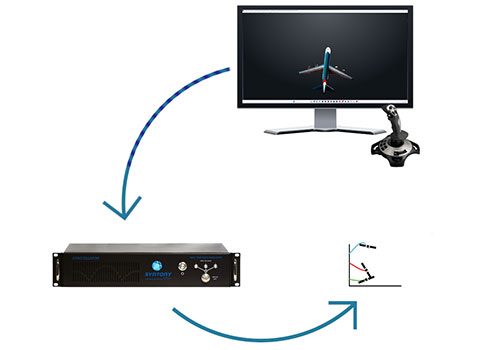Understanding Hardware-in-the-loop GNSS Simulation
Hardware-in-the-loop (HWIL or HIL) GNSS simulation is a sophisticated technique that integrates real-time trajectory data from external equipment into GNSS simulations. This method is crucial for testing GNSS receivers under dynamic conditions that closely mimic real-world scenarios. By incorporating real-time data, HWIL simulations allow for precise and accurate assessments of GNSS systems, ensuring that they can handle the complexities of real-life applications. One of the key to HWIL simulation is the seamless synchronization between the GNSS simulator and the external trajectory data generator. This synchronization ensures that the trajectory data is processed in real-time, allowing for a realistic simulation environment. The primary challenge lies in maintaining zero-latency efficiency, which is critical for accurate and effective simulations.
Read our Hardware-in-the-loop Application Note for more information
Constellator’s HWIL simulation capabilities
The Constellator simulator excels in providing an efficient HWIL GNSS simulation experience. One of its standout features is the ability to maintain real-time operation with zero latency up to 1000Hz, which is essential for high-precision simulations. This capability ensures that the simulation environment accurately reflects real-world conditions without any delay. Additionally, Constellator offers the flexibility to modify the data rate, allowing it to accelerate or decelerate based on the mobile’s dynamic requirements. This adaptability is crucial for simulating various scenarios and ensuring that the GNSS systems perform optimally under different conditions.
Setting up an HWIL simulation with Constellator has also been designed to be straightforward.
Once the setup is complete, Constellator efficiently synchronizes with the external trajectory data, providing a seamless simulation experience. For those looking for a step-by-step guide, the Constellator demo video offers a comprehensive walkthrough of the setup and operation process. This video is an invaluable resource for understanding how to maximize the capabilities of the Constellator simulator.
